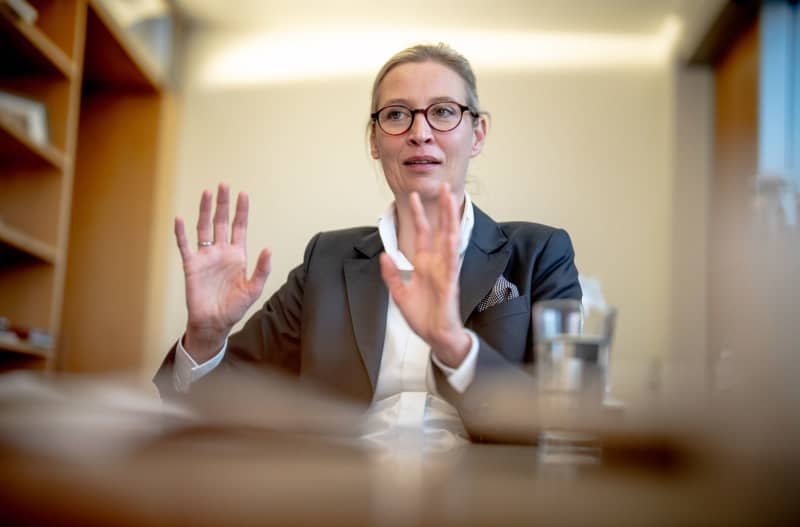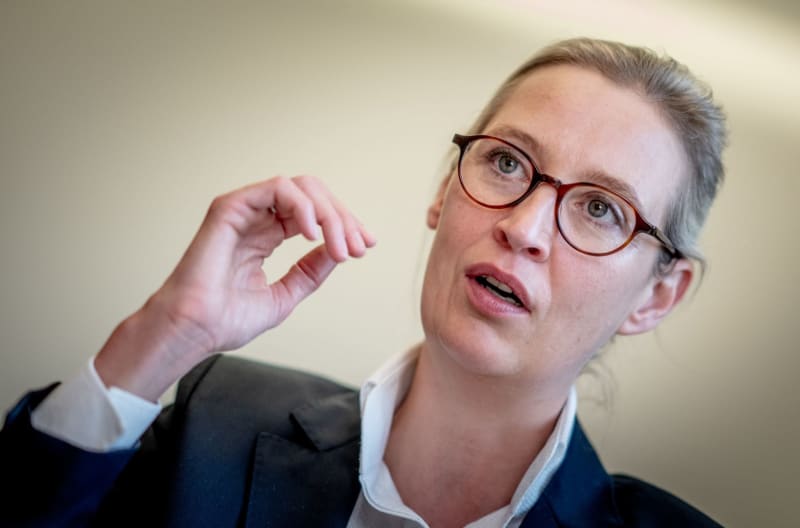“It is simply important to me that a very balanced view of things is not confused with an alleged closeness to Russian President Vladimir Putin,” Alice Weidel told dpa.
Weidel, however, argued that the German government must strike more “balance” in its relationship with Russia and Ukraine.
Russia launched a bloody full-scale invasion of Ukraine in February 2022, and the German government has been supplying the Ukrainian side with weapons and other aid.
“The glorification of one warring party and the demonization of the other side will not lead us to a solution,” Weidel said.
An AfD politician in the state parliament of Saxony-Anhalt, Hans-Thomas Tillschneider, drew criticism several days ago after congratulating Putin on his re-election. Tillschneider praised Putin for having “ensured stability and prosperity in Russia” in recent years.
Weidel’s co-chair of the AfD, Tino Chrupalla, attended a reception at the Russian embassy last May despite the Russian war against Ukraine.
When asked whether she was happy that the opposition in Germany was not treated in the same way as in Russia, Weidel replied: “I don’t want to judge that because it’s a domestic issue.”
But she complained about how her party is treated in Germany, including that AfD lawmakers have been excluded from sensitive oversight committees that monitor Germany’s intelligence services.
Germany’s BfV domestic intelligence service is currently investigating the AfD as a suspected far-right extremist group.
Many Russian opposition politicians and Kremlin critics have been jailed, driven into exile or threatened with harsh punishments for speaking against the regime. Putin faced no genuine opponents in his re-election campaign.
Weidel admitted that differing views on Russia could make it difficult for far-right populist parties to form a faction in the European Parliament after elections in June.
The AfD is currently a member of the Identity and Democracy Group (ID), which also includes the right-wing Italian Lega and Marine Le Pen’s far-right French nationalist party Rassemblement National.
In addition to the ID Group, other right-wing parties are organized in the Group of European Conservatives and Reformists (ECR), which includes the Polish Law and Justice (PiS) party and Italian Prime Minister Giorgia Meloni’s Fratelli d’Italia.
Both PiS and the Fratelli d’Italia have been staunch supporters of Ukraine and advocates of the NATO alliance.
In February, Weidel travelled to Paris for a meeting with Le Pen, a former French presidential candidate, in an attempt to mend the AfD’s damaged relationship with the French far-right.
Weidel acknowledged Le Pen’s concern about extensive news coverage of a meeting last autumn between AfD officials and far-right extremists at a villa outside Berlin, where attendees discussed ways to force immigrants to leave the country.
Weidel also said the French politician remained unhappy with the AfD’s top candidate for European Parliament elections, Maximilian Krah.
In the past, Le Pen’s party had taken offence at the fact that he had employed someone who had previously been fired from the Rassemblement National. He was also criticized for not publicly supporting Le Pen in the French presidential election campaign, but the right-wing extremist Éric Zemmour.
“That was also an issue, we discussed it and then we discussed everything else with Mr. Krah personally,” Weidel told dpa.

